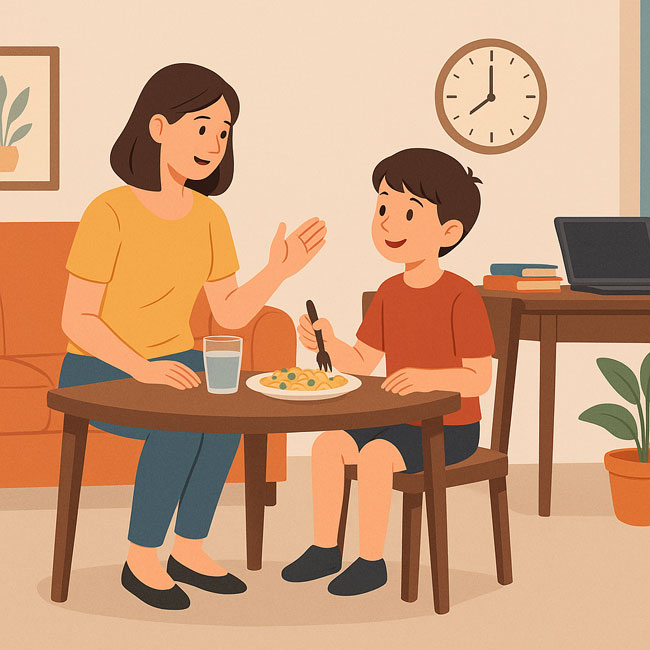In today’s fast-paced life, every moment of a child’s day is valuable. If parents are unable to manage their child’s routine effectively, it not only affects their academics but can also impact their overall growth. Lack of proper rest — especially from waking up early and staying up late — can lead to incomplete sleep, and mistakes made during the day can affect their focus on studies. Experts emphasize that maintaining a proper routine after school is just as important as during school hours to help children stay on track with their homework and progress in their learning.
Fix a Lunch Time
Children return from school hungry, tired, and often mentally drained. It’s important to provide them with timely, nutritious meals along with some rest. Ideally, a healthy and nourishing lunch should be served within 30 minutes of returning home. This not only satisfies their hunger but also refreshes their mind.
Avoid Giving Lectures
When kids come home feeling upset or stressed from school, avoid scolding or lecturing them about using mobile phones or not studying. Instead, engage with them positively — ask them about their day and school experiences during lunch. Let the conversation be light and casual while they eat.
Allow 30 Minutes of Free Time
After lunch, give them 30 minutes of unstructured free time. Let them rest, talk, play, or even use a device — but within limits. Think of this as their mental detox time, helping them recharge before they begin any focused activity.
Set a Fixed Homework Time
Set a clear and consistent time for completing homework. When children know they have a designated time for study, they are more likely to stay committed and focused. Treat study time like any other normal part of the daily routine. Also, be present with them during this time — your presence can motivate them and help them stay on track.
Schedule Creative Time
If you want to limit screen time, introduce a fixed slot for creative activities. Encourage them to engage in dance, cycling, drawing, ball games, or any hands-on activity they enjoy. A well-planned routine like this not only reduces screen dependency but also boosts their creativity and keeps their mind active.




